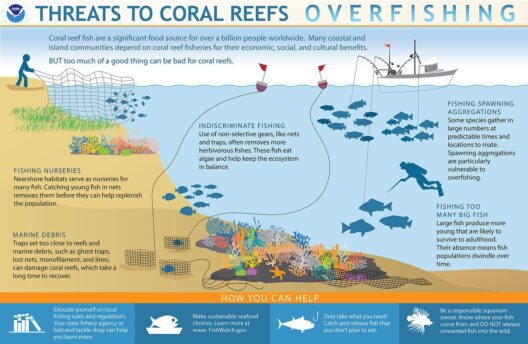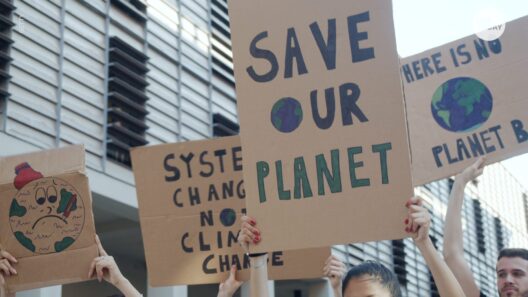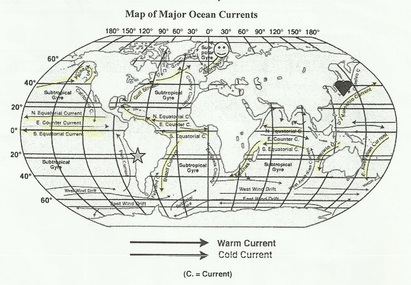When the Climate Clock Hits Zero: A Critical Dilemma
The concept of the climate clock, ticking down to a pivotal moment, engages a universal concern about the future of our planet. This concept serves as a stark reminder that the decisions we make today will determine the ecological landscape of tomorrow. As this metaphorical clock approaches zero, it symbolizes more than just a countdown; it represents a culmination of environmental degradation, climate catastrophes, and socio-political inertia.
In this article, we will explore the implications of reaching this critical juncture, examine the underlying motivations for our fascination with the climate clock, and highlight what steps can be taken to avert an impending crisis. The narrative we weave around the climate clock encapsulates urgent issues that require immediate attention and action.
The Psychological Toll of Countdown Narratives
Human beings are innately drawn to countdowns. Be it New Year’s Eve celebrations or the iconic ticking of a clock, there is an underlying thrill associated with anticipation and finality. The climate clock, however, is unique in that it stirs a deep sense of urgency blended with existential dread. The crux of our fascination lies not merely in the countdown but in the implications encapsulated within it.
As the climate clock ticks toward its zero hour, a profound realization becomes apparent: the impending impacts will not merely affect future generations but are already altering the fabric of our present. Extreme weather events, from unprecedented hurricanes to prolonged droughts, offer a visceral reminder that environmental change is not a distant reality. Rather, it is unfolding before our eyes, urging us to confront uncomfortable truths about human agency and accountability.
Understanding the stakes involved brings an acute awareness of the interconnectedness of our choices. The ticking clock serves as a metaphorical nudge, urging societies to rethink everything from energy consumption to waste management. Yet, beneath this urgency lies a paradox: while the awareness of impending doom can galvanize action, it can also generate feelings of helplessness and despair.
Consequences of Inaction: A Grim Forecast
When the climate clock reaches zero, we will not merely witness a theoretical collapse of ecosystems; we will experience tangible repercussions manifested in altered weather patterns and scarcity of resources. The ramifications of delayed action extend to water security, food systems, and human health. Governments and policymakers will confront insurmountable challenges, requiring adaptive strategies in the face of mounting pressures.
One harrowing forecast is the potential for mass migrations driven by climate change. The displacement of populations due to rising sea levels, increased frequency of natural disasters, and agricultural collapse could lead to unprecedented humanitarian crises. This reality is exacerbated by social inequities, where marginalized communities often disproportionately bear the brunt of environmental degradation.
Moreover, the economic implications of climate inaction cannot be overstated. Industries reliant on stable weather patterns, such as agriculture and tourism, face declining viability, threatening livelihoods and economic stability. The climate clock is not just a symbol of environmental urgency; it unearths the fragile nexus between ecological health, economic viability, and social equity.
Why Are We So Captivated by the Climate Clock?
The allure of the climate clock can be distantly traced to fundamental human traits: a blend of curiosity, urgency, and self-preservation. Psychological research indicates that humans are primed to respond to immediate threats, creating a compelling impetus to act when confronted with clear timetables and outcomes. This can explain why the symbolism of the climate clock resonates so profoundly in public discourse.
Moreover, the clock serves as an educational tool, facilitating discourse around climate change by making abstract concepts more tangible. By visualizing time as a limited resource, the clock prompts a deeper contemplation of accountability and responsibility. It encourages an ethos of stewardship, compelling individuals and communities to engage with environmental issues on both personal and collective levels.
Actions We Can Take Before the Clock Strikes Zero
While the narrative surrounding the climate clock can provoke anxiety, it also champions the resilience of human ingenuity. The call to action goes beyond mere acknowledgment of the crises at hand—it necessitates proactive strategies to mitigate impending catastrophes. Here are some actionable steps:
1. **Advocacy and Policy Engagement**: Engaging with local and national policymakers is crucial. Advocating for sustainable policies—such as transitioning to renewable energy sources and enforcing stricter emissions regulations—ensures collective accountability.
2. **Community Mobilization**: Grassroots movements have proven effective in generating momentum for environmental advocacy. Mobilizing communities to engage in sustainability efforts fosters a sense of collective responsibility and empowerment.
3. **Personal Accountability**: Individual actions, while seemingly small, accumulate to create significant impact. Committing to reduce carbon footprints by adopting energy-efficient practices, limiting waste, and supporting ecological initiatives can inspire a broader cultural shift.
4. **Education and Awareness**: Spreading awareness through education can reshape narratives around climate change. Initiatives focused on sustainable living, environmental science, and the implications of climate action can offer communities tools for resilience.
In Conclusion: Racing Against Time
The climate clock serves as a poignant reminder that the planet is at a crossroads. The urgency propelling us toward action must be met with equally vigorous commitment to sustainable practices. As the clock ticks down, it is imperative that we harness our psychological affinity for countdowns to fuel proactive measures that can protect our planet for generations to come. Only through collective action and unwavering resolve can we hope to stave off the dire consequences that await when the clock finally strikes zero.






